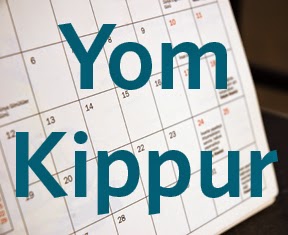Avodah also means work–giving something of ourselves to God. But what benefit could God derive from our prayers? How do our prayers serve the Divine? The Hebrew word l’hitpallel means to pray. The root word is pallel, which actually means to judge, clarify, differentiate or decide. In the reflexive tense of the word–l’hitpallel, the subject acts upon him/herself. Prayer, therefore, is about self-definition and establishing some level of personal inner clarity. During prayer, one is able to clarify his/her relationship with God and with the world, thus opening a clearer channel of communication with the Divine.
The prayers that the sages chose to make up the daily service were selected because they were considered to be the most effective means of focusing a person’s thoughts to create the proper relationship with God.
This is all the more so with regard to the prayers that make up the liturgy of the High Holidays. Yom Kippur is unique in that there are five separate prayer services (instead of the usual four on Shabbat and Yom Tov), and while some of the prayers repeat themselves, each repetition provides us with an opportunity to discover new understanding in the meaning of that prayer.
This Treat was posted on September 30, 2014.

Copyright © 2015 NJOP. All rights reserved.
If you like what you’ve read here, signup to get notifications about new treats.
Related Posts
Inside Prayer
Jewish prayer is a complex, multi-layered activity. The sages refer to prayer as…
0 Comments2 Minutes
Inside Prayer
Jewish prayer is a complex, multi-layered activity. The sages refer to prayer…
0 Comments2 Minutes
Inside Prayer
Jewish prayer is a complex, multi-layered activity. The sages refer to prayer…
0 Comments2 Minutes
 Print This Page
Print This Page
